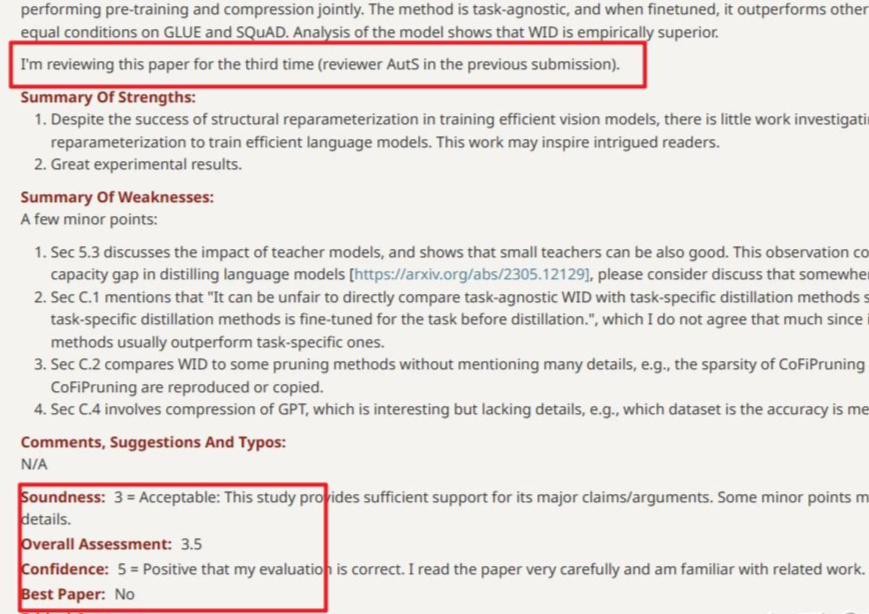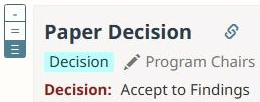🥹 The 2-year journey of surviving the ARR peer review saga
-
"Who hasn't faced storms and rain? Hold on, for beyond the clouds awaits the moon."
I'm Taki, and I'd like to share the roller-coaster journey of my paper "Weight-Inherited Distillation for Task-Agnostic BERT Compression". This was not just a story of perseverance; it was a saga of submission, frustration, and eventual triumph.

A stormy start at EMNLP 2022
Back in May 2022, I eagerly targeted EMNLP 2022 with my freshly crafted manuscript. Reviews arrived: one reviewer rated it promising with a solid 4, while another casually dismissed it with a curt 2. The third reviewer bluntly criticized the lack of references without reading thoroughly, giving a harsh 2. My careful rebuttal went unnoticed, and to add salt to the wound, the first reviewer's confidence dropped from a 4 to a 3. It felt like being lost at sea.
Lost in the middle ground: ARR 2022
Determined, I tried the ARR October 2022 cycle — scores hovered around mediocrity (3, 3, 3). A second submission improved slightly, rising to 3, 3.5, 3.5. But uncertainty lingered, like mist obscuring the shoreline.
Heartbreak at ACL 2023
Hope surged again when an AC at ARR suggested the paper was suitable for top-tier conferences. Excitedly, I submitted to ACL 2023, yet it was promptly rejected without any rationale or comments. My queries were met with silence or dismissive replies, leaving a bitter taste and a sense of injustice. It felt like a penalty wrongly called in a crucial game.
Dark clouds at EMNLP 2023
Undaunted, I ventured forward to EMNLP 2023. Alas, the experience worsened. One reviewer, incomprehensibly harsh and grammatically confusing, awarded a devastating 1, citing missing references without providing specifics. Appeals went nowhere, frustration peaking as my complaints echoed unanswered.

Turning tides at ARR 2023
Exhausted but resolute, I sought solace in ARR 2023. Miraculously, familiar faces among the reviewers returned, generously reaffirming their positive stances with solid confidence. Yet, a skeptical reviewer found the innovation moderate, nudging my excitement downward again.

Dawn at NAACL 2024

Finally, a breakthrough emerged. I refocused on NAACL 2024, refining and positioning my paper clearly. By then, clarity and focus shone through — the innovation rooted in progressive learning, inspired by my mentor’s whimsical suggestion to use "weight inheritance" for compression. Integrating ResRep's structural re-parameterization into linear layers, my novel approach took shape, shedding earlier clouds of confusion.

Reflections and Realizations
Through countless setbacks and small victories, this turbulent journey illuminated truths about peer review. It's messy, subjective, and often frustrating. Yet, despite harsh storms, perseverance and clarity of vision eventually pierced through.
I share this story, not only as encouragement but as a call for empathy and reflection within our community. After all, behind each paper lies not just innovation, but a human journey worth acknowledging.
To those facing similar storms — keep holding on
 The clouds do eventually part, and your moon awaits.
The clouds do eventually part, and your moon awaits.
P.s. the original sharing can be accessed here.

